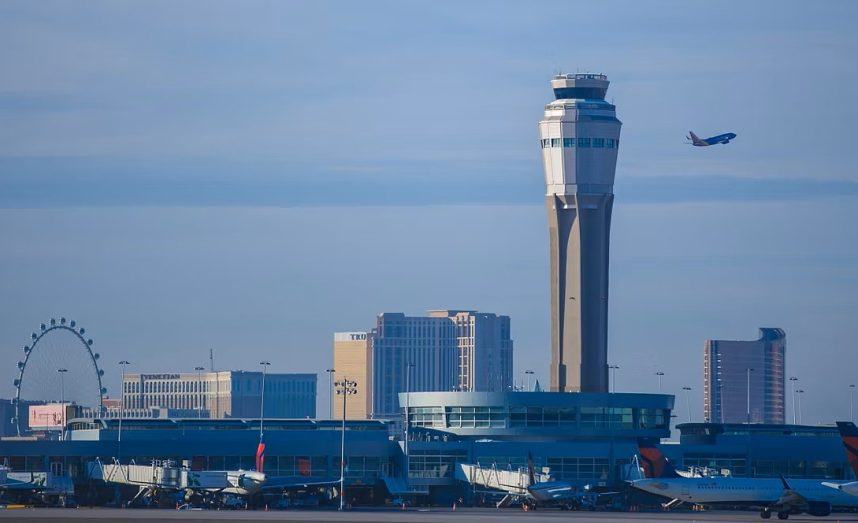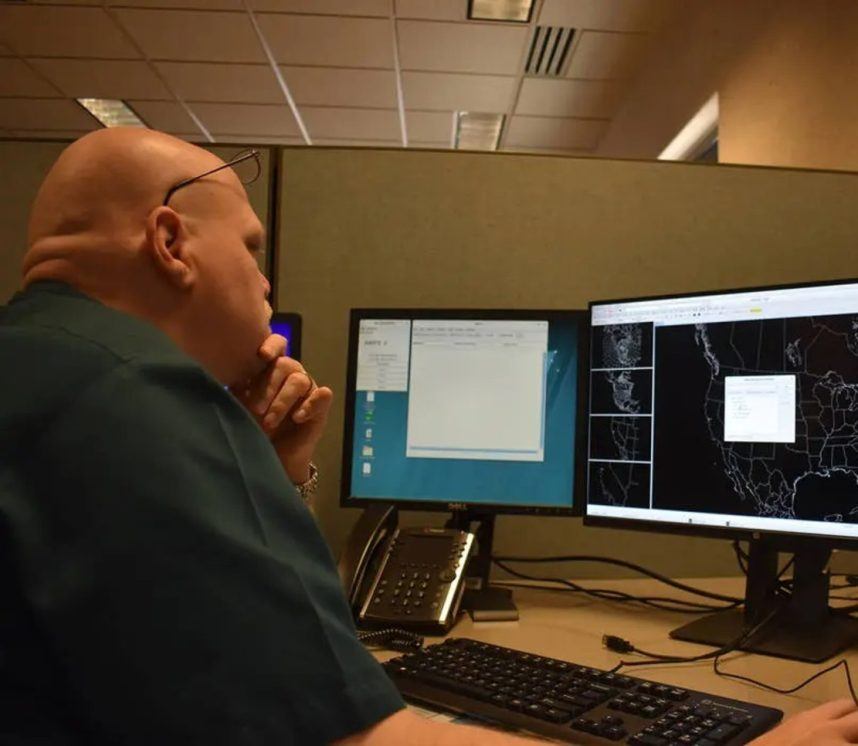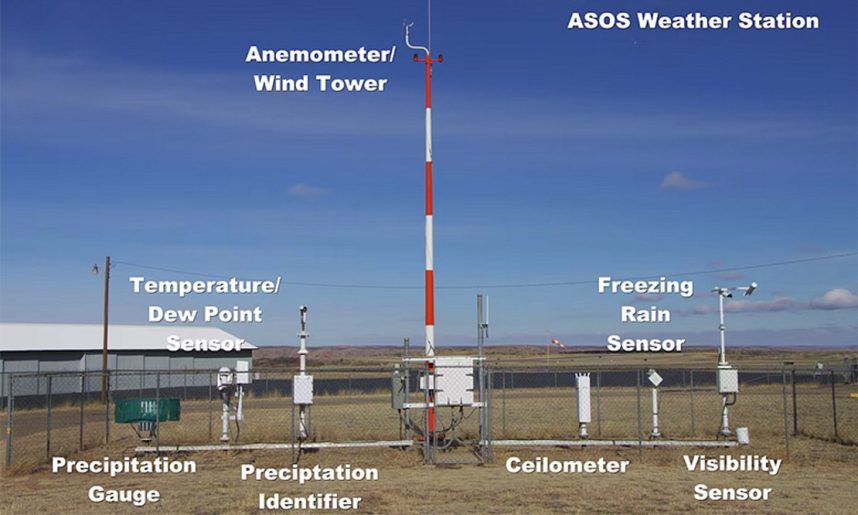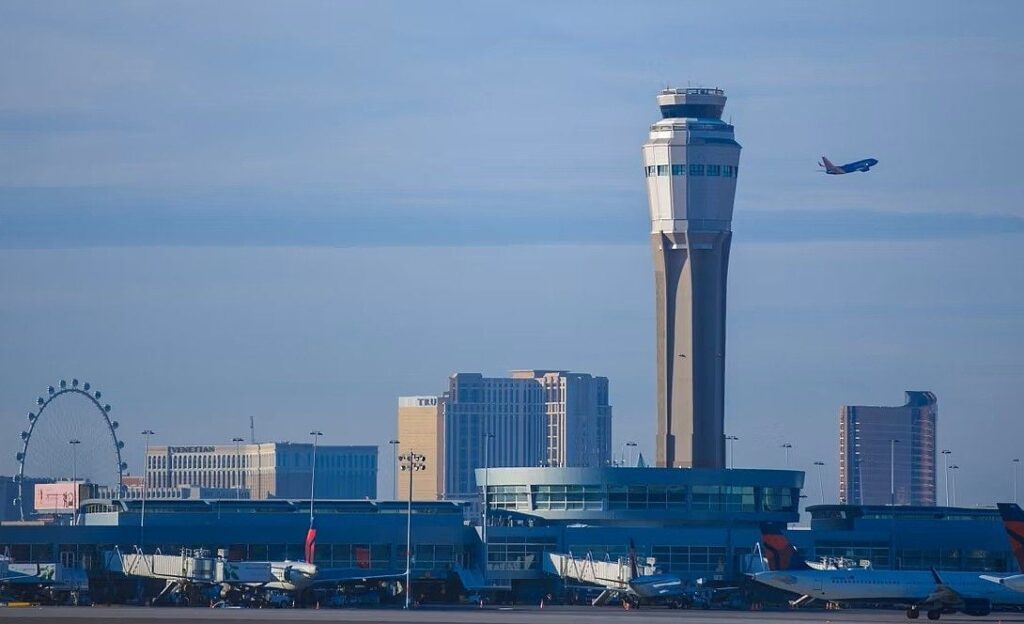Posted on: July 8, 2024, 07:06h.
Last updated on: July 8, 2024, 09:51h.
The highest temperature to ever scorch Las Vegas, 120°F, was recorded at 3:38 p.m. Sunday by the National Weather Service (NWS) weather station at Harry Reid International Airport. According to many conspiracy theorists, however, the actual temperature here routinely tops that number and goes underreported at the behest of the Las Vegas Convention and Visitors Authority, which doesn’t want tourists knowing how hot Sin City really gets in the summer.

This goal supposedly gets accomplished by keeping the weather station’s temperature sensor in the shade instead of how most of those walking around Las Vegas experience the weather — in the blazing sun.
Some conspiracy theorists, such as one who commented below this recent video on the “Jacobs Life in Vegas” YouTube channel, go as far as insisting that the weather station was secretly relocated to the top of the air traffic control tower, where the air is cooler.
“Lies and misinformation,” insisted YouTube user @taylorlto806. “It’s ridiculous … The weather DOES and HAS exceeded 120 most summers, but it is no longer announced due to tourism.”
Weathering Heights

Yes, the temperature gauges at Harry Reid are kept in the shade. However, that’s true of all NWS weather stations.
“Historically, all temperatures are measured in the shade to be consistent, as the amount of solar radiation a location gets differs in different areas even when the temperature is the same,” NWS meteorologist Daniel Berc told Casino.org.
He added: “All official National Weather Service thermometers are kept in white, vented enclosures to reflect the sunlight. The shade, vents, and reflective paint allow the air to circulate freely so the thermometer can accurately measure the air temperature.”
Berc, who has worked in the agency’s Las Vegas office since 2012, says the air-traffic control tower theory is a new one to him. According to Berc, the official NWS Las Vegas weather station has never sat higher than five feet off the ground.
The first one began taking observations on Jan. 1, 1937, at Nellis Air Force Base. That was back when it was known as the Western Air Express Airfield and the NWS was called the US Weather Bureau.
That station was moved to Las Vegas’ civilian airport, then known as Alamo Field, on Dec. 18, 1948, two days before it was renamed to honor Senator Pat McCarran. The station was installed outside the Weather Bureau’s office at Alamo, with its sensors measuring the air at about five feet off the ground.
On Sept. 1, 1995, the weather service replaced this station with an automated weather station located a bit east of what is now the middle of the airfield — again, about five feet off the ground. Because it was automated, it no longer needed to be manually read. So NWS abandoned its airport office for its current one on Dean Martin Drive.
That weather station needed to be moved due to the construction and expansion of a new taxiway. So, since April 19, 2007, the official NWS Las Vegas weather station has operated, once again, with its sensors about five feet off the ground in the southwest corner of the airport

Of course, as any Las Vegas resident knows, the eastern side of Las Vegas, around Boulder Highway, tends to get hotter than the rest of the valley because it sits at a lower elevation. And occasional amateur readings of above 120°F may have given this myth some legs.
“While we do not have any official climate sites there, readings of 120°F or above would certainly be plausible, however rare,” Berc said.
Why Always at Airports?
Official weather stations are usually located at airports, Berc explained, because “weather is so important to the aviation community.” (Both North Las Vegas and Henderson, Nev. have airport NWS weather stations recording and reporting their official temperatures, too.)
In fact, from 1948 through 1995, Berc said, pilots would walk into the official weather office at Las Vegas airport and receive flight briefings directly from meteorologists. Then they would know they were getting the most accurate information possible.
This would distinguish those pilots of yesteryear from today’s conspiracy theorists, who get their information from social media, fake news sites, and misinformed friends and family members.
Look for “Vegas Myths Busted” every Monday on Casino.org. Visit VegasMythsBusted.com to read previously busted Vegas myths. Got a suggestion for a Vegas myth that needs busting? Email [email protected].



